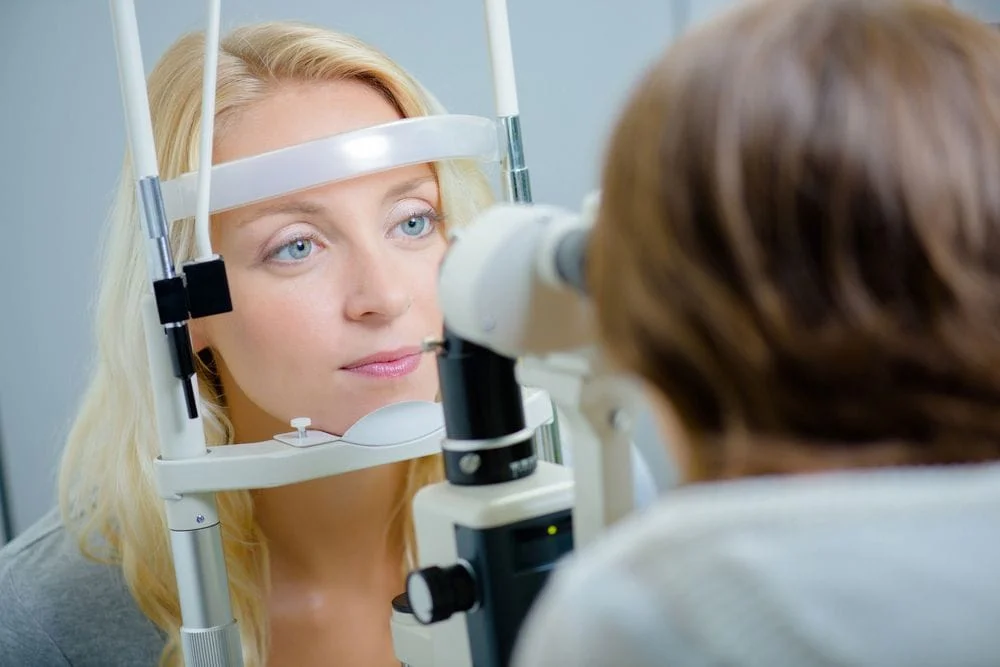Vision Screening and Eye Exams in Arvada
Arvada Optometric Center Offers Complete Eye Exams
At Arvada Optometric Center in Arvada, CO our optometrists offer complete eye exams for patients of all ages, including children 6 months and up. Our optometry clinic recommends that all people get eye exams from a licensed optometrist at least once a year and we are happy to provide comprehensive eye exams for patients located in Arvada, Broomfield, and Westminster, CO. Call us today at (303) 424-5282.
Often, people think that vision screenings and eye exams are the same things, but they are not. Vision screenings, while useful in determining if a person can see well, are not as comprehensive as eye exams. An eye exam checks not only for vision problems, but also for eye conditions, diseases, and more subtle visual errors than a screening can usually detect.

Eye Exams Are for Everyone
Eye exams are beneficial for people of all different ages. Children 6 months and up can be examined by our optometrists to prevent vision problems. Childhood vision problems are relatively easily solved if caught early but can be much harder to treat later on. 1 in 4 school-aged children have a vision that can affect learning and other parts of life, and their vision changes much more quickly. Common childhood eye conditions are screened for, as well as rarer ones:
- Strabismus - Crossed Eyes
- Amblyopia - Lazy Eye
- Myopia - Nearsightedness.
- Hyperopia - Farsightedness
- Astigmatism - Distorted Vision
- Congenital forms of eye diseases such as cataracts and glaucoma
Adult eye exams are mainly to screen for the presence of disease and manage any conditions that already exist, such as myopia or hyperopia. It is especially important that older adults visit an optometry clinic regularly because many age-related eye conditions have no symptoms until significant damage has occurred. However, adults of all ages should see an eye doctor regularly because eye diseases can happen at any age:
- Cataracts
- Glaucoma
- Macular degeneration
- Diabetic retinopathy
- Corneal ulcers
These conditions are relatively common, but an eye exam also screens for rarer conditions. If any abnormality is detected, additional types of testing can be used to pinpoint the problem.
What to Expect
Eye exams are relatively non-invasive and should not be unpleasant. Your eye exam will be specific to your eye needs, but all comprehensive exams include:
- Visual acuity screening
- Cover test for eye alignment
- Slit-lamp exam
- Tonometry/glaucoma test
- Retinal Examination
- Refraction testing
These test check for a wide range of eye diseases, they assess problems with visual acuity, makes sure that your eyes are working well together, and will determine your prescription (if any). At the conclusion of your eye exam, our optometrists will have assessed the health of your eyes and determined what kind of glasses prescription you need.
